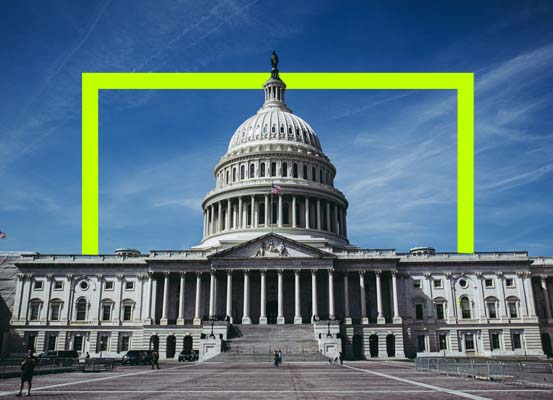NIHC Leads the Way: Rome Wasn’t Built in a Day
There has been some recent chatter in our industry about creating opportunities to export U.S. industrial hemp. This week, we’re happy to share an update from Kevin Latner, NIHC’s Senior Vice President of Trade (see his blog post).
We can’t emphasize this fact enough. The NIHC is participating in the USDA’s Market Access Program (MAP) which means we are sitting at the international negotiating table with U.S. trade representatives representing you and bringing opportunities to open markets abroad for U.S. grown hemp and hemp-derived products.
Participation in the MAP program means that the USDA recognizes the NIHC as an official government cooperator. It is a huge responsibility and one that we don’t take lightly, which is why we often inform you of not only what’s happening here at home, but on developments happening internationally. As we seek to advocate before U.S. regulators, we also need to be aware of how U.S. policies will affect markets overseas if they’re not harmonized with European or Asian regulations. We also want to ensure that the fine print in proposed regulations or legislation will not indirectly cause a technical barrier to trade.
And, it’s not just the MAP funding where NIHC is participating.
The NIHC has, not one, but two representatives sitting on the USDA’s Agricultural Technical Advisory Committees (ATAC). These are important committees inside the USDA that advise both the Secretary of Agriculture and the United States Trade Representative (USTR) on technical points on hemp. Kevin Latner sits on the ATAC for Processed Foods which includes jurisdiction for things like CBD and CBD-infused products, including food. Patrick Atagi, NIHC Board Chair, sits on the ATAC for Cotton, Tobacco and Peanuts. Recently, Patrick proposed to his colleagues on the Cotton, Tobacco, and Peanuts subcommittee that they include hemp in the name – and we’re happy to report that they overwhelmingly agreed. There are a few more steps in the process, but we hope to report soon that Patrick will be sitting on the newly named Cotton, Hemp, Tobacco, and Peanuts subcommittee that will be advising the Secretary of Agriculture and the USTR.
These are big opportunities for the industry and, specifically, NIHC members, who will learn of critical information first.
We are often asked when discussing policy with the media or other stakeholders, “What does this mean for hemp?” As an industry and as advocates, we must get out of that mindset. Hemp has been legalized since 2018 and we should start to recognize all the benefits that come with this.
Rather, the question we should all be asking is, “How does this benefit hemp and move the ball forward for our industry?” The USDA in both the Trump and now the Biden administrations recognized the benefits to the overall Ag economy by including hemp within the numerous programs at USDA. It means the world to us that we have the trust of not just our members who we advocate for, but also of the USDA, the USTR and other government regulators.
In December of 2018, the Agriculture Improvement Act of 2018 was finally signed into law by President Trump. While the rest of the Ag community was plugging in and moving along, the hemp industry was just getting started.
With the world finally opening up from the 2020 devastating effects of the once-in-a-lifetime pandemic, markets are opening back up, too. We hope our efforts and careful planning will open opportunities around the world for the job creators in the hemp industry.
The point is: We’re moving in the right direction and we’re making progress every day at NIHC both at home and abroad. Some have recently stated and written in interviews about how the hemp industry needs to have leadership in Washington to better grow the industry. As you know, we’ve been here all along. We must remember that all great American success stories took time to overcome obstacles and become the great industries that they are today.
As the old adage goes, Rome wasn’t built in a day.














